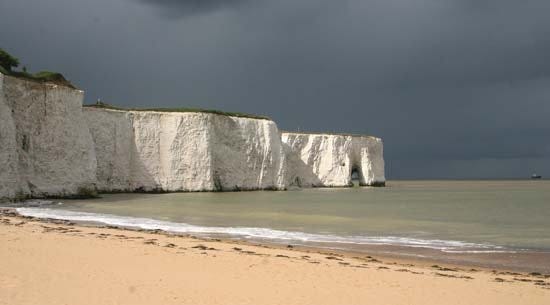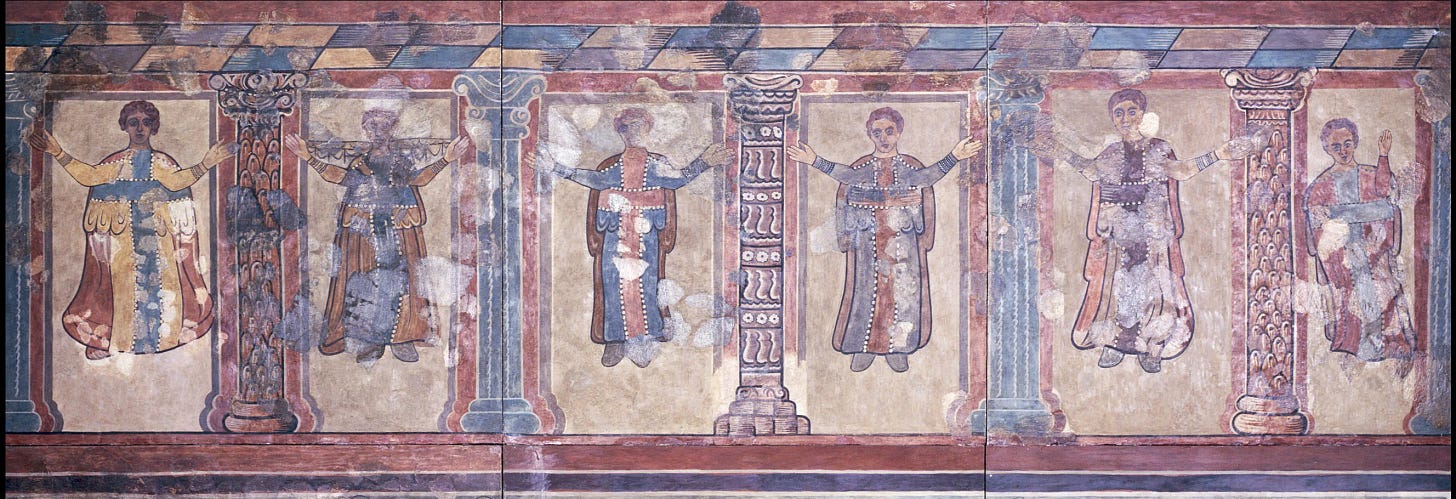Light-Bearers Tremble Before the Shadowed English Thrones
Augustine of Canterbury and the Conversion of the English
Hello there! I’m currently studying for a PhD in Archaeology at Oxford, researching the role of women in the social and political developments of 6th- and 7th-century England and France. With a worldwide readership of over 4,600 PLUS featuring regularly in Substack’s top 100 fastest-growing history publications, I share medieval history as you rarely hear it. I combine written and archaeological evidence to share the experiences of overshadowed individuals, ask challenging questions of dominant interpretations, and recommend books and writers doing a wonderful job of unearthing the past. My top 3 posts of all time have been a review of Rebecca Stott’s Dark Earth, biography of Æthelthryth of the Northumbrians (the queen who wouldn’t sleep with her husband), and my guide to Oxford’s top medieval moments.
Light-Bearers Tremble Before the Shadowed English Thrones
Augustine of Canterbury and the Conversion of the English
Some time in 597, a small band of monks stepped off their small wooden vessel onto the first dry land they had seen for almost 24 hours. Travel had become familiar to them - they had been on the road for months on a journey not without its setbacks - but now that they had arrived at their destination their heads swam with a confusion of emotions. Charged by their eminent pope, Gregory I, with the task of converting this heathen nation, Augustine and his fellow missionaries knew they were doing God’s work. Yet tales of martyrs, bloody sacrifices, and battle-hungry warlords filled their minds; surely God didn’t mean to welcome these barbarians into the kingdom of Heaven?

Roman troops had withdrawn from Britain in the years around 410, responding to more immediate pressures closer to their capital. This was, however, only the straw that broke the proverbial camel’s back: the previous few decades in Britain had been marked by slow and steady decline, particularly its economy. With increasing incursions along the borders and coastlands, however, and the eventual refusal of support from Roman troops, the Imperial province collapsed.
Being adopted as the official religion of the Roman Empire in the 360s, Christianity had become well-established in Britain during the closing years of imperial rule, and public displays of paganism had become illegal by 391-2.1 While many ‘ordinary’ men and women are unlikely to have had the time to study Christianity before the collapse of the Empire, the experience of elites was different. Excavations at the villa at Lullingstone (Kent), for example, have revealed that it had a ‘house church’ and frescoes depicting well-dressed Christians in a posture of prayer.2

After 410, however, Christianity seems to have gradually disappeared entirely and by the close of the 6th century, most people living in what would become England were entirely ignorant of Christianity.3 Raiders and family groups settling in these regions during the 5th and 6th centuries brought with them the gods of their ancestors, such as Woden and Thunor. These gods, as well as a host of others, would be called upon in the groves and sacred forests that peppered the landscape, perhaps to bless the harvest or protect a community against the ghosts they feared were living in the Roman ruins that surrounded them.




